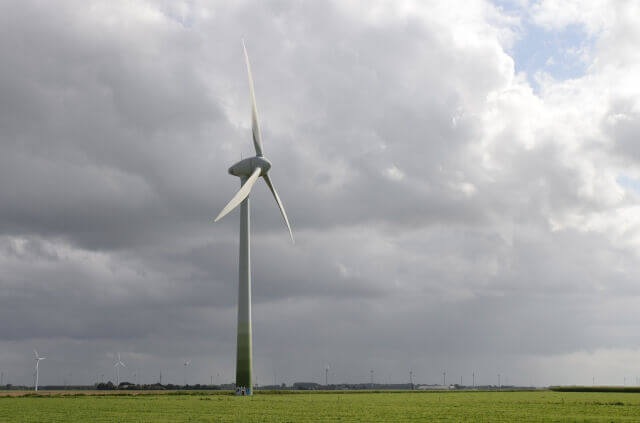The Competition Corner: Latest updates (week 15 t/m 19)
In this blog we highlight the latest developments on competition law.
Case law
Dutch court considers itself to have jurisdiction only in a limited number of cases regarding cartel claims FX Foundation
This concerns a follow-on cartel damages case in which the jurisdiction of the Dutch court is at issue. Stichting FX Claims has filed a claim on behalf of 31 underlying parties against Natwest N.V. and several foreign banks. All but three of the underlying parties are domiciled outside of the Netherlands. Stichting FX Claims argues that the underlying parties suffered damages as a result of the cartel conduct. That conduct involved the exchange of competitively sensitive information between FX traders in private chat rooms. The European Commission (the ‘Commission‘) has found in a number of decisions that the banks thereby infringed the cartel prohibition. However, the banks believe that they should not have been sued in the Dutch courts. The Court partly agrees and declares itself incompetent to take cognisance of the claims of Stichting FX Claims against the banks, to the extent that the claims were brought on behalf of the foreign-based underlying parties.
Petrol station operator unsuccessfully brings cartel claim against Total
This case involved a conflict between the operator of a petrol station and Total. Following an auction of the concession for this petrol station along a national highway, Total took over the licence from its legal predecessor Esso. The operating agreement that the operator entered into with Total had the same content as the earlier agreement with Esso. The operator claims damages and goodwill compensation for the shop the operator ran at the petrol station. The operator is of the opinion that Total has always charged them litre prices that were too high and wrongfully did not give discounts, which prevented them from making a profit on fuels. The operator has already litigated about this several times; including against Total’s legal predecessor. Both in this case and previous proceedings, the operator alleges – in brief – a tort of overcharging. In this case, it adds that unlawfulness would exist because of vertical price fixing in violation of the cartel prohibition. Total allegedly withheld discounts from the operator which it did grant to others, thereby creating a discriminatory pricing policy. As a result, the free recommended consumer price that Total applied to the operator was effectively an imposed (and thus prohibited) minimum price. The Court ruled that the damages claims should be dismissed due to res judicata. Although the competition law angle was new, the facts, actions, legal relationship and ultimate legal basis (tort) are the same as in previous proceedings. The claim for goodwill compensation is also dismissed.
Article 9 Damages Directive only applicable in competition law damages claims
In 2009, the Spanish competition authority decided that Repsol would be fined for violating competition rules. This was because Repsol contractually indirectly fixed the prices of its independent petrol stations. In 2018, a group of petrol station owners launched a case against Repsol. They sought the annulment of the supply agreements they entered into with Repsol during the competition law infringement and compensation for damages caused by Repsol. The referring court refers to Article 9(1) Damages Directive (2014/104/EU). This article provides that an infringement decision issued by a competition authority is to be regarded as an irrebuttable presumption of the existence of a competition law infringement in damages actions. The European Court of Justice (the ‘Court‘) reminds the referring court of the scope of the Damages Directive. It applies only to damages actions brought for breaches of the competition rules. It cannot therefore be applied to actions for annulment. As regards the damages claim, the Court held that Article 9(1) Damages Directive did apply. According to the Court, an infringement decision by a competition authority is to be considered “irrefutably established” in national courts until proven otherwise.
Decision initiating proceedings against Amazon on abuse of dominant position stands.
On 10 November 2020, the Commission adopted a decision opening proceedings under Article 102 TFEU against Amazon. According to the Commission, Amazon’s commercial practices may artificially favour its own retail offer, and the offer of sellers on its marketplace who use Amazon’s logistics and delivery services. This would violate the prohibition on abuse of a dominant position in Article 102 TFEU. Amazon applied to the General Court for partial annulment of the Commission’s decision. This application was declared inadmissible by the General Court, as the contested decision did not affect Amazon’s legal position (apart from its procedural position). Against this, Amazon brought an appeal before the Court of Justice. The Court of Justice joined the General Court and dismissed the appeal.
Supreme Court asks preliminary questions after cartel damages claim against Heineken and Athenian Brewery
The Greek competition authority fined Heineken and Athenian Brewery (‘AB‘) – which belong to the same group – for cartel agreements in the Greek beer market. As a result, Macedonian Thrace Brewery (‘MTB‘) filed a cartel damage claim against Heineken and AB in the Dutch courts. At issue in these cassation proceedings is the jurisdiction of the Dutch court over the claim against AB. This was debated up to the Supreme Court. The district court had declined jurisdiction, but the court of appeal set aside the court’s judgment. The court held that the Dutch court had jurisdiction because there was a close connection between the claims against AB and Heineken that required simultaneous hearing and trial. The Supreme Court doubted whether the presumption of decisive influence of Heineken over AB in respect of the economic activity in question had any bearing on the assessment of whether there was such a close connection between the claims that the proper administration of justice required simultaneous hearing and trial. The Supreme Court, by judgment of 21 April 2023, referred this matter to the Court for a preliminary ruling.
Court overturns ACM ban on takeover of Mauritskliniek by Bergman Clinics
The Consumer & Market Authority (ACM) decided not to grant a licence in late 2021 for the takeover of the Mauritskliniek by Bergman Clinics. At the time, Bergman Clinics was already the largest chain in the field of independent treatment centres in the Netherlands. The ACM concluded that the takeover would give Bergman Clinics an even stronger negotiating position vis-à-vis health insurers. This would lead to further price increases, making innovative care less affordable. According to the Rotterdam District Court, the competition authority did not sufficiently substantiate its decision.
In its ruling, the court argues that the ACM applied the correct legal yardstick when assessing the concentration. However, the court determined that the ACM failed to establish the plausibility of Bergman Clinics’ indispensability in terms of both the health insurers’ duty of care and their customers. Therefore, there was no good reason to stop the takeover of Mauritskliniek.
Although the acquisition ban has been quashed, the deal cannot in practice go ahead. This is because Mauritskliniek was acquired by Corius, a German-Swiss chain of dermatology clinics, in 2022.
Decisions by the ACM or the European Commission
ACM fines three egg buyers for making prohibited price agreements
The ACM has imposed fines on Interovo, Wulro and Global, three egg purchasing companies. According to the ACM, they made illegal price agreements regarding the purchase of eggs from farmers raising laying hens. On 8 May, the Rotterdam District Court ruled in a preliminary injunction that the fines and fine calculations should not be disclosed for the time being. The fined parties buy industrial eggs. These types of eggs are not sold in supermarkets but are used within the food processing industry. The fined parties process these eggs into liquid egg products or egg powder products, such as egg yolk or egg white. These products are then sold, for example, to sauce manufacturers and confectioners.
From April 2015, Wulro and Interovo worked together for more than a year to align prices, allocate suppliers and exchange competitively sensitive information. Wulro and Global also did so for more than three years (from March 2016). The directors of the companies kept in regular contact via WhatsApp to discuss their agreements and their purpose. The ACM considers this a serious violation of the cartel ban and has imposed fines.
Martijn Snoep, ACM board chairman, said the following about the penalty decision: “These companies concluded secret price-fixing agreements regarding the purchase price of eggs, and coordinated among themselves from which farmers they would purchase eggs. These actions have harmed the farmers. They ended up getting a lower price for their eggs. We take strict enforcement action against such buyer cartels.”
The fined parties have requested the interim relief judge to suspend the publication decision. To do so, the interim relief judge must assess whether the fine decision can stand. Thus, the mere fact that there is doubt about the amount of the fine is insufficient reason to suspend the publication decision. In such a case, the court in preliminary relief proceedings may decide to allow the publication of the decision imposing a fine without mentioning the amounts of the fine and the numerical substantiation thereof. The interim relief judge deemed the latter situation applicable.
Global, Interovo and Wulro objected to the penalty decision.
Legislation
Merger review procedures further simplified by European Commission
On 20 April 2023, the Commission adopted a merger simplification package. This further simplifies merger review procedures under the EU Merger Regulation. This package clarifies and broadens the categories that can be treated under the simplified procedure. It also streamlines the review of (non-)simplified cases and optimises the transmission of documents to the Commission. The new rules will apply from 1 September 2023.
European Commission extends motor vehicle block exemption and amends additional guidelines
On 17 April 2023, the Commission announced the extension of the motor vehicle block exemption (the ‘MVBER‘) by five years until 31 May 2028. Whereas the current MVBER had a duration of 13 years, the Commission has now opted for a shorter duration. This will allow the Commission to adapt the MVBER and guidelines in a timely manner to possible developments in the market, such as the digitisation of vehicles, electrification and new mobility patterns.
In addition, the Commission has updated the supplementary guidelines for the sector. In it, the Commission clarifies, among other things, that data generated by vehicle sensors can be essential inputs for repair and maintenance services. Also, the supplementary guidelines warn that dealers who unilaterally fail to share essential inputs with independent operators may thereby violate the prohibition on abuse of a dominant position.
ACM publishes guidance on rules for online platforms and online search engines
The Platform-to-Business Regulation (‘P2B Regulation‘) sets out rules to ensure that businesses can use online platforms and online search engines to reach consumers in a competitive, fair and transparent online environment. This is part of a broader European approach to better regulate the digital economy. In combination with the adjacent Digital Markets Act (‘DMA‘) and the Digital Services Act (‘DSA‘), the P2B regulation will become very important for (large) online platforms. In the Netherlands, the ACM will be tasked with enforcing the P2B regulation.
To clarify how the ACM interprets the obligations under the P2B Regulation, the ACM published the ‘Guidelines for Promoting a transparent and fair online platform economy for businesses’ on 14 April 2023. In it, the ACM sets out the obligations under the P2B Regulation and provides guidance on their application.
News
Commission designates the first set of Very Large Online Platforms and Search Engines in line with the Digital Services Act.
The Commission adopted the first designation decisions under the Digital Services Act (“DSA”), designating 17 undertakings as Very Large Online Platforms (“VLOPs”) and 2 as Very Large Online Search Engines (“VLOSEs”) that reach at least 45 million monthly active users.
Among the Very Large Online Platforms are portals like Alibaba AliExpress, Amazon Store, Apple AppStore, Booking.com, Facebook, Google Play, Instagram, LinkedIn, etc. At that time, Google Search and Bing were listed as Very Large Online Search Engines.
Following their designation, the companies will now have to comply, within four months, with the full set of new obligations under the DSA. The aim of these obligations is to protect and empower users online by requiring designated services to assess and mitigate systemic risks and provide robust content moderation tools. These include giving users more control over their information and the ability to report illegal content, prohibiting targeted advertising towards children, and requiring platforms to be transparent about their terms and conditions and how they moderate content. Companies must also provide risk assessments and external audits of their compliance with the DSA obligations, and publish transparency reports on content moderation and risk management.
Other noteworthy updates:
- S. Tuinenga, ‘Exhibition claims in cartel damages cases: a (too) rigid Dutch practice?’, Tijdschrift Mededingingsrecht in de Praktijk, SDU 2023, number 2 (only in Dutch).
- European Commission launches consultation on draft text of review of de minimis aid for services of general economic interest (SGEI).
- AG Kokott Opinion (Engie Global LNG Holding and Others v Commission C-454/21 P).
If you have any questions about the topics we have covered, feel free to contact us. We will be happy to help you further.






